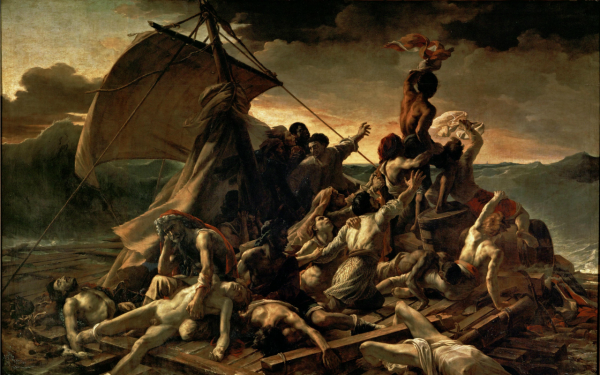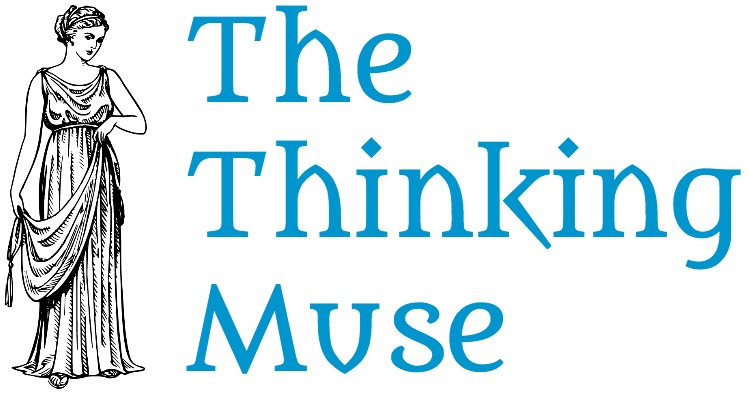The Age of Romanticism

Love. Spirit. Emotion. Soul. All very colorful and strong words. They’re intangible, yet we insist that they exist. We know they are there, not because we can see them or touch them, but because we feel them inside of us, guiding our decisions and making us see the world in a different light. They aren’t practical or sensible, yet so often it’s encouraged to “follow your heart”. Why is this? Why is today’s society so quick to cling to emotion and instinct? Should we?
What was Romanticism?
The roots of how we think of things like emotion and love are in something called the Romantic age, or the Romantic era. It was a period in literature and philosophy from the late 18th century to the mid 19th century that stressed the idea of romanticism. Romanticism was essentially a reaction against the philosophy of the Enlightenment, which is explained in an earlier article.
(See Related: What was the Enlightenment?)
The Enlightenment was founded on the principles of human reason and sensible deduction, while the Romantic age stressed the importance of emotion and feelings. To the Romantics, the Enlightenment felt cold, mechanical, and impersonal. They believed that when someone disregards emotion, they lose part of what makes them human.
Rousseau and the Beginning of Romanticism
Jean-Jacques Rousseau is often considered the father of Romanticism. His political ideas on the “state of nature” and democracy were in line with his Enlightenment contemporaries, but many of his other philosophies would go on to inspire a new age of thinking. He believed that people are born pure and moral, but are corrupted by society. True morality, Rousseau believed, isn’t found through reasoning, but gifted at birth. He wrote of his idea of the “noble savage”, which held that a savage without civilization is more noble in heart because he is not exposed to the selfishness and greed of society. He admired the naïvety of the child, because only a simple and uncorrupted mind can truly understand what is fair and righteous. This was very different from other Enlightenment thinkers, who believed that morality should stem from human reason and experience. Still, Rousseau held onto his ideas. What is so important to realize about Rousseau and the Romantics is that in an age of rapid technological advancement and fantastic machines that made lives easier and people richer, Rousseau instead admired the child, in all its simplicity and naïveness.
Goethe and the Spread of Romanticism
While the Enlightenment was a movement of literature, science, and technology, Romanticism was a movement of literature, art, and music. After Rousseau, possibly the most important romantic writer was Johann Wolfgang von Goethe. Goethe was a German writer whose most influential works were The Sorrows of Young Werther and Faust. The former was a story of a young man named Werther who fell in love with a married woman named Charlotte. Because of the social structures of the day, the love between Werther and Charlotte was impossible, and overtaken by grief, Werther commits suicide. Goethe directs all of the reader’s sympathies to young Werther, who followed his heart over his brain. The book was extremely popular all over Europe. Faust was the story of a scholar who sells his soul to the devil for knowledge and pleasure. Strong emotions play out in the story, and many things go wrong for the scholar. Although Goethe is arguably the most famous romantic author, he criticized the Romantic movement as ridiculous and didn’t consider himself as a member of it. Regardless, the impact of his writings became irreversible.
Examples of Romanticism
Romantic poets like William Wordsworth and Lord Byron wrote poems about idyllic beauty and the power of emotion. Romantic art would often depict scenes of nature, such as the famous Wanderer above the Sea Fog. Others would show people in exaggerated and strong poses to depict drama and emotion. Musical composers like Beethoven, Chopin, Tchaikovsky, and Sousa all contributed to the Romantic genre of music, which was characterized by dramatic and colorful melodies. To get an idea of how influential the Romantic movement was for music, just remember the famed first four notes of Beethoven’s “Symphony No. 5”, the main tune of Tchaikovsky’s “Nutcracker”, or Sousa’s “Stars and Stripes Forever”.
Radicals and Revolutionaries
The Romantic age also had profound effects on the political world. Groups of people struggling for independence were seen as true Romantics because of their heartfelt struggle against the odds. The greatest example of this was movement for Greek independence from the Ottoman Empire, which was achieved with aid from the British. In 1848, there were revolutions and struggles for freedom all across Europe. Most of them were unsuccessful, but it was a sign that Romanticism had really resonated with Europeans, and the movement had become more than just books and poems. The failure of these revolutions was one of the major reasons for the rise of realism in the 1850s, which, ironically, could be blamed for the demise of romanticism.
How Did the Romantic Age End?
The age of the Romantics, if not ended by the realism of the late 19th century, definitely stopped after WWI. After WWI in the 1920s and 1930s, something called the “Age of Anxiety” set in in Europe. Despite all of the great optimism for the future before the war, Europe had not only been destroyed, but been destroyed by the very ideas they thought would bring them to a great future. One of these ideas was Romanticism, and another was the Enlightenment. People didn’t know what to believe in anymore, because everything that they had believed in before led up to the most horrific war in recent memory. A period of philosophical uneasiness (“Age of Anxiety”) would continue until after WWII.
The Enlightenment and Romanticism in America
Both of these primarily European events occurred when the US was in its impressionable youth. Benjamin Franklin, Thomas Jefferson, and John Adams, just to name a few, were all disciples of the Enlightenment. As mentioned in my last article, it’s no coincidence that the Declaration of Independence and the Constitution hold many ideas core to the Enlightenment. If it weren’t for the enlightened leaders of the revolution, it’s quite possible that the United States would’ve taken much longer to become independent. As Romanticism became popular in Europe, it did in the US too. American Transcendentalism, a spiritual movement inspired by Romanticism, gained popularity in the US. Poets Edgar Allan Poe and Walt Whitman were at the forefront of American Romanticism, and have contributed greatly to the literary identity of the country. These two movements shaped early America and continue to have vast influence on its society today.
The Enlightenment Versus Romanticism
The Enlightenment and the Romantic age are unarguably the two most impactful European ideological trends of the 18th and 19th centuries. They are fundamentally very different, and in some ways complete opposites of each other. They both changed the very way that generations thought of life, and both resonate strongly to this day. But which one has more influence on today’s society? The case could be made for both, of course. On one hand the Enlightenment introduced the world to modern scientific practices and led to extremely influential inventions. It’s still thought of as impressive when someone can thoroughly think something through using reasoning, and to be a skeptic. But, it’s also still encouraged today to “follow your heart”, and many people believe in destiny and the power of determination. “If you believe it you can do it”. The kind of mentality that seems mainstream in modern society is very reminiscent of Romantic thought. Without the lens of history, it’s difficult to make grand statements about today’s world, but I personally think that the modern era is one leaning towards Romanticism.
When you hear about these two movements, you might think about which one you belong to. That can be very difficult though. Both have appealing and unappealing factors. Imagine two people, one embodying everything about the Enlightenment, and the other everything about Romanticism. Neither one of them seems very suitable to lead a balanced life. When you think about yourself, don’t think that these two things are black and white. It’s not heart versus mind or reason versus romance. Both need to be mixed to make good decisions. Instead of radicalizing on one side, most people would agree that it is better to be enlightened without being inhumane, and to be romantic without being unreasonable.
Thank you so much for reading, and if you haven’t already, check out my earlier post on the Enlightenment. This article will bring an end to the month of August, and I hope you’ve enjoyed it.
Author: The content of this article was conceived of and created by Paul Schneider-Krumpus for The Thinking Muse.
Resources
“Internet History Sourcebooks.” Internet History Sourcebooks. N.p., n.d. Web. 28 Aug. 2016. <http://sourcebooks.fordham.edu/mod/modsbook15.asp>.
Palmer, R. R., and Joel Colton. A History of the Modern World. New York: Knopf, 1971. Print.
“Romanticism.” Encyclopedia Britannica Online. Encyclopedia Britannica, n.d. Web. 28 Aug. 2016.
“Romanticism.” Wikipedia. Wikimedia Foundation, n.d. Web. 28 Aug. 2016.




